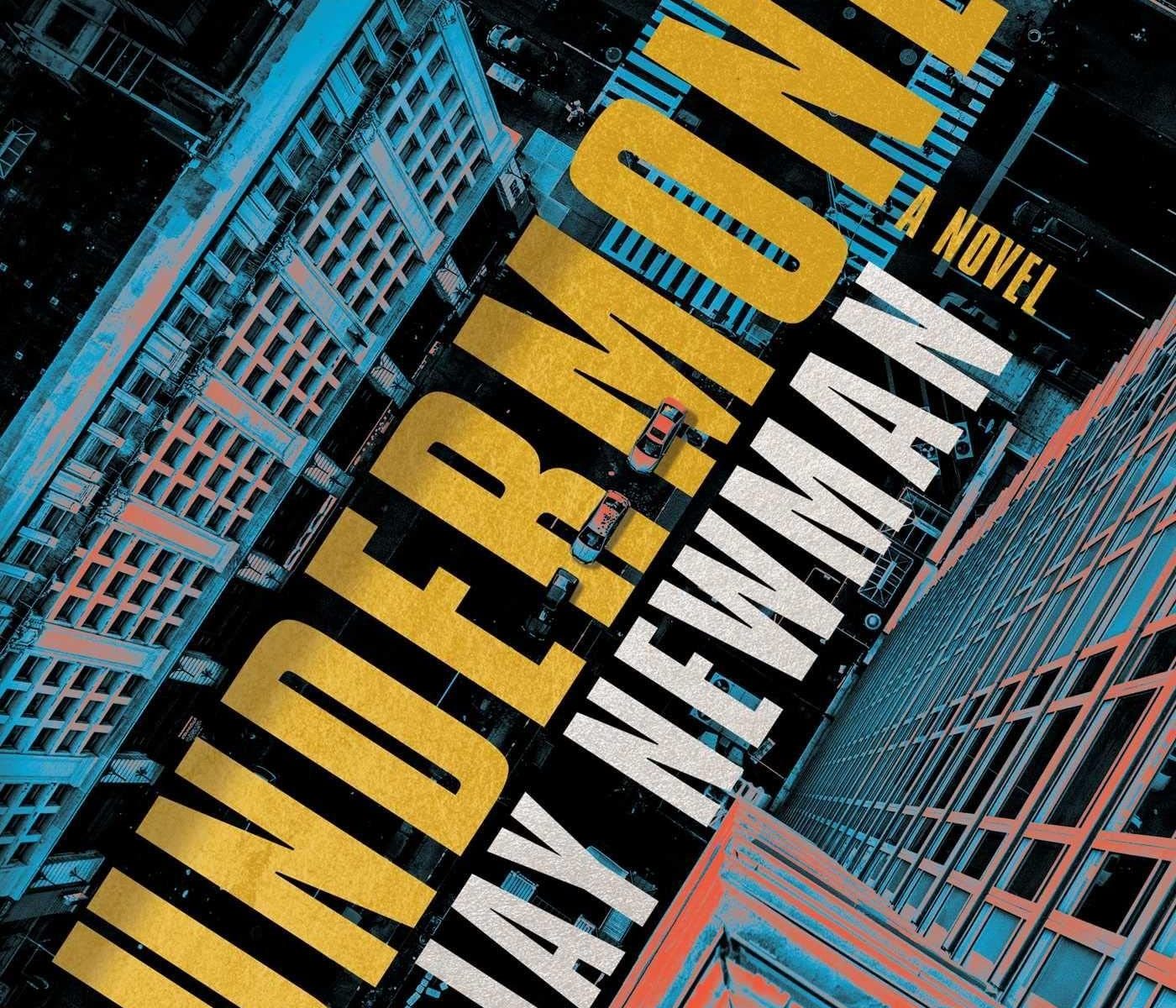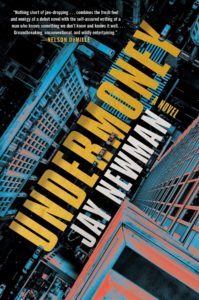This Spring, my top book recommendation is the zeitgeist-capturing financial thriller Undermoney, by first-time novelist Jay Newman.
This has everything you want.
Sociopathic billionaires. A beautiful adrenaline-junkie with the fighting skills of a special forces assassin. Deep State operatives conspiring to steal billions of US taxpayer money in order to buy an election and undo American malaise. Murderous Russian oligarchs deploying mercenary armies, serving Putin the puppet master. A Medici-descendent who controls a financial fortune to rival his descendents. Conspiracies within conspiracies.
In his knowledgeable name-dropping of military specs on all geopolitical sides of war, Newman channels the Tom Clancy novels of the 1980s Cold War fiction. With his speculations into spycraft and double-dealing among competing military-industrial complexes, Newman nods to John LeCarre. Conspiracies hatch more intricate conspiracies, as baroque as anything from Dan Brown’s Da Vinci Code. If you enjoy financial/military/spy/conspiracy thriller books, you will love Undermoney.
Published in January 2022, the fictional description of Putin and his use of mercenaries to do his dirty work seems ripped straight from current headlines. The dark money fueling US hedge funds are equally nefarious. Newman understands how kleptocracy and oligarchic excess – both in Russia and in the West – repel and attract us in 2022. This is fun stuff and extremely of the moment.
Jay Newman is not just any regular first-time novelist. Newman describes the world of the ultra rich and connected hedge funders because he worked, and fought, and emerged victorious from this world.
He himself holds a legendary place in the hedge fund world, having endured decades-long battles against countries unwilling to pay their debts. When he writes about big money, international political intrigue, maniacally-focused hedge funds managers, he has lived through it all.
In 1999, Newman managed to win a court case and change international bond market precedent against countries that do not pay their debts to bondholders.
A brief interstitial financial history of sovereign debt: In the 1980s many Latin American countries defaulted on their debt to US and European lenders. In the 1990s, debt holders swapped their defaulted loans for “Brady Bonds,” named for for US Treasury Secretary James Brady. The new negotiated settlements allowed much of Latin America to rejoin international financial markets, even though debt holders had to accept less than full value to get back the Brady Bonds. I worked as a bond salesman at Goldman starting in 1997, focused on buying and selling Brady Bonds, so I lived and breathed this stuff for a few years.
Jay Newman, however, had purchased some Peruvian debt and withheld it from the Brady Bond debt swap. He joined forces with a very patient hedge fund named Elliott Associates. With Elliott, Newman sued for full payment of the debts from Peru. After years of legal appeals he eventually got a New York court to agree that Peru could not pay its Brady Bonds without settling Newman’s debt in full as well. For a few weeks in 1999 he threw the entire country into default, until he got paid. Newman became known as is the ultimate hard-ball negotiator of sovereign debt.
When Argentina had the largest sovereign debt default of all time in 2001, Newman deployed the same playbook. When the vast majority of debtholders turned in their defaulted Argentine debt for new bonds and accepted huge losses, Newman and Elliott held out for full payment. He sued Argentina. He made an absolute nuisance of himself in US courts and international courts.
Newman famously managed to seize an Argentine naval ship in Ghana with 200 sailors aboard, using a Ghanian court order. In this way he anticipated the current string of yacht-seizures happening across the globe this spring against Russian oligarchs.
Fifteen years after Argentina’s original default in 2001, with many twists and turns along the way, Newman and Elliott prevailed.
Usually, when I watch a successful financier turn out to be a great writer, I turn pickle-green with envy. I do not resent Newman, however, and maybe now is time for my own quick name-drop humblebrag.

Newman was briefly a client of mine when I worked on the emerging market bond desk at Goldman. We followed along in real time as he engineered the Peruvian bond default.
I tried my darndest to sell him really cheap defaulted Argentine bonds in 2001, anticipating what his eventual strategy would be. It took him and Elliott 15 years to succeed, but eventually Newman prevailed with a $2.4 billion dollar settlement in 2016, an estimated 10x return on investment.
The word I kept returning to while reading Undermoney is prescient. Newman published Undermoney in January 2022, before most of the Western world had to reckon with Putin’s murderous kleptocratic regime. This guy sees the future.
Russian bonds will likely default in May, as Western bondholders have frozen reserves or blocked payments.
I haven’t spoken to Newman in 20 years. There’s a high probability he would not remember me, as I wasn’t a particularly good salesman and he barely needed Wall Street to do his thing. I may send him this article however, as I need to find out what he is going to write about in his next novel. He clearly anticipates the future better than anyone. That might make me money some day.
A version of this post ran in the San Antonio Express News and Houston Chronicle.
Please see related posts:
All Bankers Anonymous Book Reviews in One Place
Hedge Fund as Pirate, seizes Argentine Naval Vessel
Post read (1285) times.





